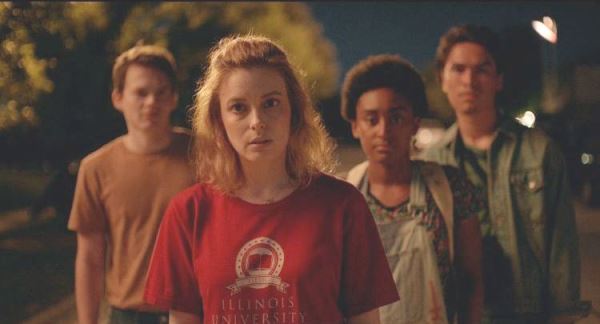
Writers—their discarded drafts and struggles with disenchantment, publishers, and the search for inspiration—are perhaps not an inherently cinematic subject. As The New Yorker’s Anthony Lane wrote in his review of All Is True, Kenneth Branagh’s recent film about Shakespeare, a good day in a writer’s life is “one in which you don’t fall asleep with your head on the spacebar.”
This apparent difficulty hasn’t kept directors from trying. The past 11 years have seen a film about John Keats (Jane Campion’s Bright Star) and not one but two takes on Emily Dickinson (A Quiet Passion and Wild Nights with Emily). Often writers must be taken out of their mundane lives and thrust into a world of intrigue, as in Sunset Boulevard, Barton Fink, and (in an extreme case) Romancing the Stone. Wonder Boys and Starting Out in the Evening portray literate, sedentary people who we can believe as writers, though both films use some similar material to fuel their plots (affairs, sometimes with younger women).
Kate Conklin (Gillian Jacobs), the writer at the center of Kris Rey’s new comedy I Used to Go Here, finds herself spiraling downwards in the vein of a gentle, life-affirming screwball comedy. She’s painfully single, her best friend (Zoe Chao) is pregnant, her life is fraying. She has just published her debut novel to sales so lackluster that her book tour has been cancelled, and, on top of that, she hates the cover the publisher chose. Her mentor from college (Jermaine Clement) has not lost his belief in her though, and he invites her to the campus to meet students and give a reading. There is, clearly, the ghost of some romantic yearnings between the two.
Meanwhile, Kate stays with the grumpy proprietor (Cindy Gold) of a bed and breakfast right across the street from the house where she and her friends used to live. This house, she discovers, is still a haven for creative writing majors, students who look up to her and with whom she instantly becomes friendly. As she revisits the past, she’s thrust into a series of increasingly awkward misadventures that force her to reevaluate her past and rediscover her integrity.
It is difficult to believe that any of these characters write, read, or are in any way creative. None of them have much to say about writing, other than the most banal platitudes (your writing is at its best when it is honest and true), and though we might see someone reading once or twice, certainly no one ever mentions a book besides Kate’s novel. The best we get is April (Hannah Marks), a young student of promise and integrity who plans to establish her own press. She too utters platitudes (Why deal with corrupt publishers when you can take things into your own hands?). It is, in fact, difficult to believe anything about these characters who are barely realized and speak in dialogue that strains for poignancy and the awkward humor of so many TV shows.
If there is anything surprising about I Used to Go Here, it is its profound lack of surprise. There’s no plot twist, no crucial realization, and no important lesson learned that strikes us as anything beyond the well-worn and expected. If there is anything to celebrate here, it’s that so many tropes managed to find their way into the same film. Were the film more knowing and tongue-in-cheek, it would be well described as a celebration of clichés.
Midway through, Kate reads a review of her novel in the New York Times. We only find out snippets of this scathing review, adjectives like “saccharine,” “aimless,” “insipid,” and the like. Unfortunately, all these adjectives describe this movie too.






Leave A Comment